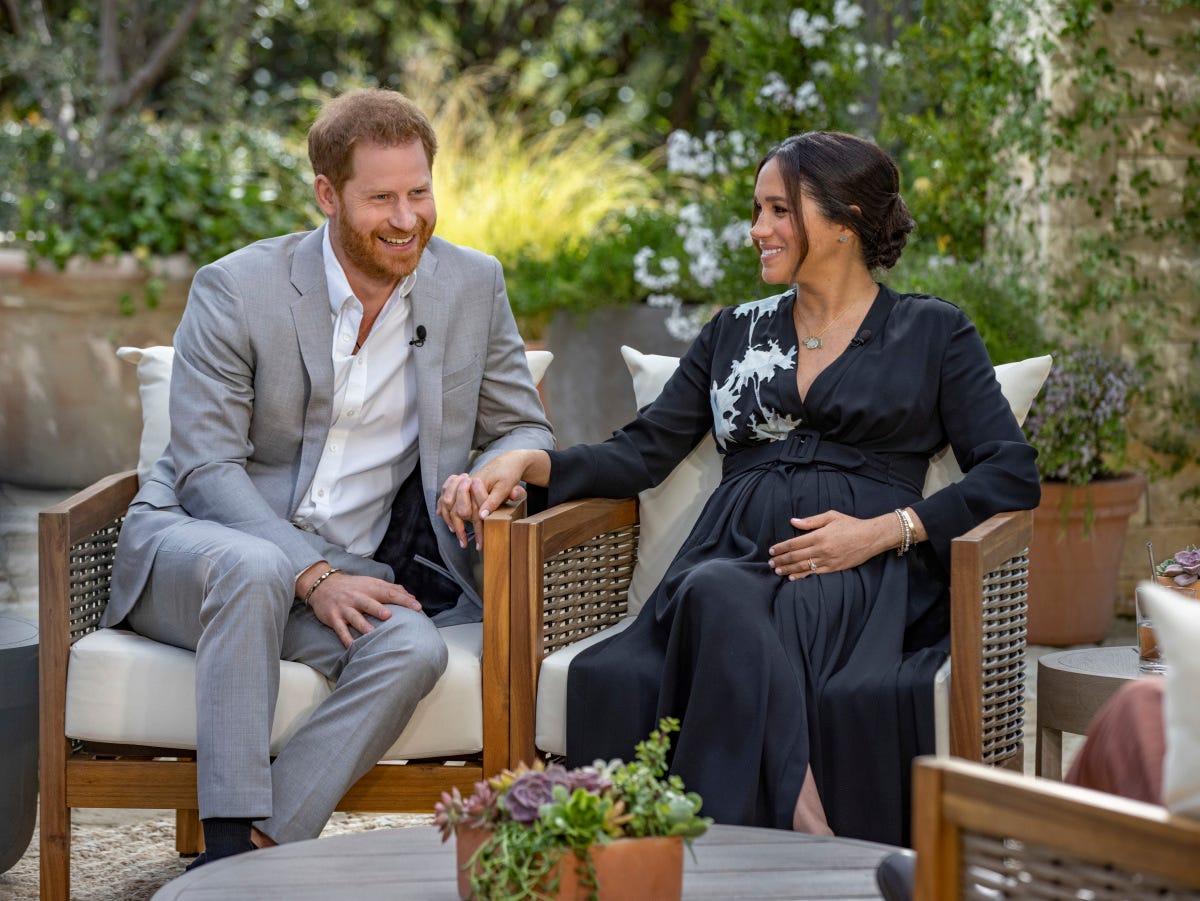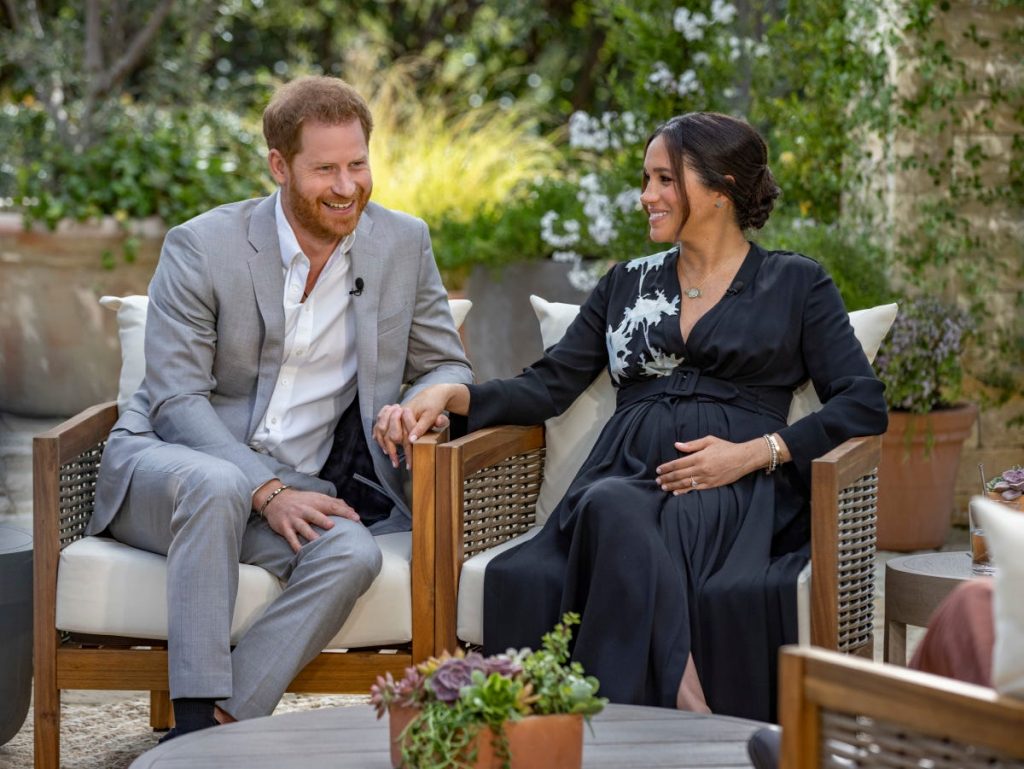
- Meghan Markle is expected to give birth at age 39, considered "advanced maternal age" in medicine.
- More women have having babies in their later 30s and beyond, though it comes with some added risks.
- Seeking preconception counseling and keeping up with prenatal appointments helps.
- Visit Insider's homepage for more stories.
Meghan Markle, who's turning 40 in August, is expecting her second child in the coming months. The Duchess was 37 when she delivered her son, Archie. While her age may have raised eyebrows in generations' past, these days delivering two children in your late thirties is increasingly common.
Still, having kids after age 35 is considered "high risk" in the medical community, and some providers refer to the pregnancies as "advanced maternal age" or even "geriatric," though naturally the terms are controversial.
"There is nothing advanced about 35," Dr. Daniel Roshan, a high-risk maternal-fetal OB-GYN in New York City, told Insider. He simply says "maternal age."
Here's what to know about getting pregnant relatively later in life, and how to boost your chances of a healthy pregnancy and childbirth in your mid-30s and beyond.
Finances, careers, and stress may all contributing to later-in-life pregnancies
The average age of childbirth in the US is 27, compared to 1993 when it was 24. The number of women having kids in their early 40s rose steadily between 1985 and 2019, and held steady in 2020 while rates of birth in other age groups plummeted to record lows, CDC data showed.
The reasons are multifold: Couples want to get their finances on track before starting a family, women want to establish themselves in their careers before making room for parenthood, people are finding their life partners later in life."It's not always their choice," said Roshan, who has patients as old as 50.
Advanced reproductive technology has made childbearing later in life possible for more people too, though it's costly and can be less effective in older age.
Cleopatra Kamperveen, executive director of the Fertility and Pregnancy Institute, told Insider other forces are also at play too - especially during a pandemic. "When we are living in a state of fight-or-flight or chronic stress, the automatic functions of ovulation and reproduction more broadly get put on the back burner," Kamperveen told Insider, and that makes it harder to get and stay pregnant.
Risks of pregnancy over age 35
Nothing changes overnight when a woman turns 35. But the age represents a sort of tipping point for when fertility can be more challenging and some risks of pregnancy and childbirth go up.
"There' a notable decrease in female fertility beginning at approximately age 32 and this decline in fertility becomes much more significant past age 37," Dr. Belinda Yauger, an OB-GYN with the Brooke Army Medical Center, said during an American College of Obstetricians and Gynecologists' presentation earlier this month.
That's because the number of eggs a woman produces decreases throughout puberty and beyond, and most rapidly after age 37. The quality of eggs decline too, boosting a patient's risk for chromosomal abnormalities that lead to conditions like autism and miscarriage. While the risk of miscarriage is about 13% in women under 35, it's 54% in women 44 and older, Yauger said.
People who get pregnant after 35 are also more more likely to develop high blood pressure, gestational diabetes, and certain blood clots. Their chances are higher of delivering a low-birth-weight baby, having a preterm birth, or carrying multiples. Older pregnancies also increase the risk of c-sections and ICU admission.
Some of these risks are just a reflection of age-related medical conditions. "Diseases come with age, and the older we get the more of these we have," Roshan said.
Most 'older' patients do well, and there are some benefits
While it sounds scary, he said most people in their late thirties in beyond do very well. They're often more motivated to build families and so take medical advice seriously. Plus, medical advances have made monitoring for risks like chromosomal abnormalities - a concern after 35 - easier, Roshan said.
Some research has also linked starting a family after 33 with a longer life expectancy, and others have shown "older" moms are less likely to be physically and verbally abusive to their children, who wind up having fewer behavioral issues.
Then there are the financial, career, and social benefits older parents can enjoy. "We know from our scientific data that social support is one of the strongest predictors of fertility, pregnancy, and birth outcomes, so this is not a small thing," Kamperveen told Insider when discussing the toll isolation took on some moms who had to deliver alone during the pandemic.
What to do
At the ACOG meeting, Yauger said while you can't reverse the clock, some risks can be mitigated with interventions. For instance, one type of genetic testing used with in-vitro fertilization can drastically reduce the risk of miscarriage by selecting the embryos "most likely to create a healthy baby."
It's also a good idea to seek preconception counseling before trying to get pregnant, and critical to keep up with prenatal appointments once you are. Many providers will see so-called higher risk patients more frequently, which helps identify any potential problems - and then treat them.
Doing what you can to eat well, move, sleep, and manage stress all help support a healthy pregnancy and childbirth, no matter your age. "If you're healthy and doing well," Roshan said, "you shouldn't be fearing pregnancy."

